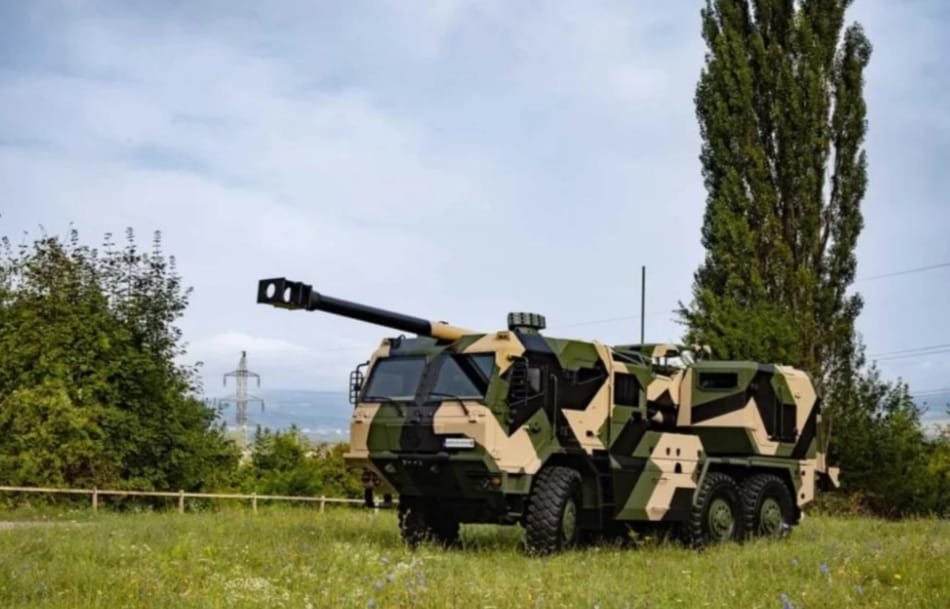
Malaysia looks to buy Slovak BIA or French Caesar
At the Malaysian DSA 2024 exhibition, visitors had the opportunity to see a model of the BIA artillery system, which is being presented by Excalibur International as part of the self-propelled artillery acquisition program for the Royal Malaysian Forces.
The appearance of this Czechoslovakian “cousin” of the DANA model at the DSA exhibition is not coincidental, as it is one of the two models currently most likely to win a contract in Malaysia. It was previously reported that the older self-propelled howitzer Eva was proposed, but it turns out that what is being offered here is a newer artillery unit based on the EVA cannon and the much heavier Zuzana 2. Therefore, the BIA cannon is presented as a favorite, even though historically it is the French CAESAR cannon that has been more favored by the local military.
Malaysia does not have self-propelled gun artillery systems in its armed forces. Local gunners only have towed howitzers of 105 and 155 mm, among others: Melary Mod 56 cannons of 105 mm, 40 M102 cannons of the same caliber, and 18 French LG1 Mk. III cannons also of 105 mm caliber. Purchasing self-propelled artillery from Slovakia could allow for the retirement of some towed systems and significantly enhance the capabilities of Malaysian gunners.
The BIA is a Slovakian 155 mm wheeled artillery system based on KONŠTRUKTA – Defense’s experience in creating the EVA and Zuzana 2 howitzers. Work began in 2021 based on the requirements of potential clients. This design is to have the same firepower as Zuzana 2, but it must be lighter and more mobile. Compared to the EVA, the new system has a much larger firing unit, greater automation, and a higher level of crew protection. In addition to using the solutions of the above structures, the development of BIA involved using the knowledge gained during military operations in Ukraine, where, among other things, Zuzany 2. Furthermore, conclusions were drawn from NATO exercises in Latvia, where the aforementioned Slovak construction was also praised.
The main armament is a 155 mm howitzer with a barrel length of 52 calibers. It can hit targets at a distance greater than 50 km using the appropriate type of ammunition, and in the case of conventional effectors with a gas generator, it is the “classic” 40-41 km. The angles of elevation of the armament range from -3.5° to +75°. BIA is equipped with an automatic loader ensuring a firing rate of 5 shots in the first minute and maintaining a firing rate of 13 shots in three minutes. In manual mode, it can fire 2 rounds per minute. The firing unit in the vehicle includes up to 20 missiles (in the case of the EVA, there were only 12).
The vehicle chassis is the Tatra T815-7 6×6 truck with an armored cabin designed to protect the crew against small arms fire up to 7.62 mm caliber and artillery shell fragments. The vehicle, weighing a total of 27 tons, is powered by a 402 HP V8 Tatra T3C-928.90 engine, coupled with an Allison 4500SP transmission. This allows it to accelerate up to 90 km/h with an operational range of 600 km. The manufacturer plans to start trying to integrate other types of chassis with BIA, probably also 8×8. This will result in greater interest from potential clients who may not necessarily be willing to purchase a new type of truck for their army. The BIA crew consists of 3 to 5 soldiers, depending on customer requirements.


